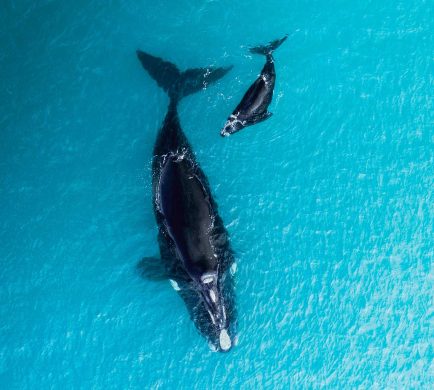
On the surface, John and Gill Dalley seemed like any other couple retiring to the Thai island of Phuket in 2003. After years of the 9-5 routine, they were ready to change their lifestyle and give something back by helping the street dogs and cats that roamed the island. Little did they know in those early days that they were laying the foundations for one of the largest and most well-known animal rescues in Asia.
Over the past 17 years, Soi Dog Foundation – “soi” being the Thai word for “street” – has rescued, rehabilitated, and rehomed thousands of street dogs and cats, neutered and vaccinated over half-a-million more, and successfully abolished Thailand’s brutal dog meat trade. And they maintain that this is only the beginning.
In this interview, John Dalley MBE discusses Soi Dog’s humble beginnings, the ongoing fight against Asia’s dog meat trade, and his hopes for a brighter future for the homeless animals of Thailand and beyond.
What did Soi Dog look like in its early days?
At first, we were feeding dogs at temples, running small mobile sterilization clinics, and taking sick and injured dogs to the local vet for treatment. We had a handful of volunteers, some dog catchers, and a “shelter” in a disused restaurant!
Initially, our mission was to focus on Phuket because that’s where we lived, and the problem was huge. We wanted to get to the root cause of street dogs and cats’ overpopulation through a program of CNVR [Catch, Neuter, Vaccinate, Return]. We knew it would take years to see a difference because of the sheer numbers – there were approximately 70,000 street dogs on the island back then – but we were doing what we could. We certainly never expected it to become what it is today.
CNVR has always been at the forefront of Soi Dog’s operations. Tell us more about the program.
We’re currently neutering and vaccinating over 10,000 stray dogs and cats a month across Thailand. When you compare that to just over 1,000 in the first 18 months we existed, it’s a huge growth curve. We’re treating more animals than any other organization in the world now by a long way.
Although the [street dog] population has shrunk in Phuket – to around 7,000 – it’s a case of continually keeping on top of it. You’ve got to have a maintenance project as I describe it. The problem is always being fed by selling [purebred] puppies at markets and the dumping of unsterilized animals on the streets. It’s a battle, always.
What challenges has Soi Dog-faced over the years?
Rarely a year goes by without a crisis! Some of the biggest challenges and crises we’ve faced have been natural disasters. Firstly, the 2004 tsunami displaced thousands of animals, not to mention the human tragedy. But out of something bad, something good happened as we were able to expand Soi Dog with the help of vets and volunteers who came from overseas to assist. The Bangkok floods in 2011 and 2012 were a challenge, too but helped us to establish ourselves there. We now have a clinic in the city as well as six mobile sterilization teams.

SONY DSC
Do you count the Covid-19 pandemic among those challenges?
Covid has been a massive challenge because of the sheer number of abandoned dogs coming in who need help. With adopted animals unable to fly to their new homes overseas because of travel restrictions, we now have more animals in our care than ever before – around 1,400. We’ve had to raise funds to expand our shelter to continue to take in these animals who have no one else. But again, out of something bad came something good as Covid has highlighted the dangers of the wildlife trade and the dog meat trade.
Abolishing the dog meat trade in Thailand helped put Soi Dog on the map. How was this achieved?
The trade was already illegal in Thailand due to the Rabies Act, which prohibited dogs’ transporting across borders without proper paperwork. But it wasn’t enforced; hundreds of thousands of dogs were being smuggled out of Thailand across Laos into Vietnam every year.
With the Royal Thai Navy and Police’s help, we were involved in identifying shipments of dogs, intercepting trucks, and having smugglers prosecuted. I lost count of exactly how many dogs were rescued, but it was well over 20,000. Eventually, the dog meat traders’ business suffered, and it was no longer profitable. We also lobbied the military government to introduce the country’s first Animal Welfare Act, which made it illegal to kill dogs and cats for meat within Thailand.
Soi Dog is now focused on fighting the trade in Vietnam. Do you have hope that change is possible there?
Absolutely. I didn’t expect to see an end to Thailand’s trade in my lifetime, but it happened in four years. In Vietnam, now is the best opportunity that we’ve got, and it’s because of Covid. While we do point out that the trade is inhumane – many of the dogs are stolen pets who are brutally tortured – we’ve found it more effective in Vietnam to focus on the health risks, such as rabies and cholera. Covid is only the latest disease. The more we impact animals’ habitat, the more we breed them, the more we kill them and use them for food, the more likely it is that we’re going to get more and more of these zoonotic diseases.
In your continuing efforts to end the trade in Asia, you’re often met with the question: “But isn’t dog meat part of their culture?” How do you respond to this?
I tend to shoot that down in flames! Culture is something that countries are proud of. People advertise their culture. They show it off. But during the Winter Olympics in South Korea and the proposed Formula 1 race in Vietnam, dog meat was completely taken off the streets. They didn’t want people seeing it.
There’s also absolutely no place for cruelty in culture. If there’s cruelty involved, it doesn’t matter which country it is – whether it’s stealing and butchering dogs in Vietnam or bullfighting in Spain – it must be banned. Cultures change as people develop. That’s why we’ve seen China signal an end to the trade. They’ve come to recognize that dogs have a long history of being companion animals.
Among the thousands of sick, injured, abused, and neglected street dogs and cats Soi Dog has rescued, are there any particular cases that will always stay with you?
Street animals all have a story, but the ones that stay with you are the ones you rescue yourself. Shiver always sticks in my mind. He was a puppy we found in a gutter with a horrific skin infection. He was frightened of people, and there were only one of our doctors who could touch him. Eventually, he recovered and went to a rescue organization we partner with within the USA.
Cola was another special one. He was fitted with prosthetics after having his front legs hacked off with a sword. My late wife Gill [who was fitted with prosthetics after losing her legs] had a bit of a kindred spirit thing going on with him, and so he came home with us.
At times, we’ve had 13 dogs of our own at home as well as cats and foster dogs. I’m down to five dogs and four cats now.
You have to become hardened. Otherwise, you’d be adopting them all! Having said that, I still have moments at the shelter where I think, “Ooh, should I take you home?”
In December, Soi Dog reached half-a-million animals neutered and vaccinated since 2003. A huge milestone. What other milestones would you like to see in the near future?
I would love to see an end to the dog meat trade in Cambodia, China, and Korea as well, but I’m a great believer in not spreading yourself too thinly. Another goal is expanding our education program. At the moment, our education team visit schools across Phuket and nearby Phang Nga, but I’d love to see animal welfare become part of the national curriculum here. In terms of end target, I’d like to see that Soi Dog doesn’t exist anymore because there are no more homeless dogs anywhere in the world.
What’s the best way for people to support Soi Dog at this time?
The same as always: donate! Any charity can only do as much as the funds they raise. We believe we’re very good stewards of the donations we receive, and we maximize them to directly treat more stray animals than any other organization in the world. The more donations we receive, the more we can do, and the more animals we can help. It’s as simple as that.
For more information, visit www.soidog.org







